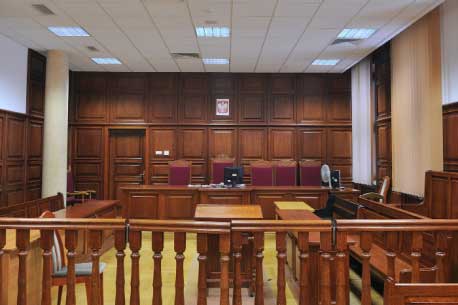The method of taking evidence in court proceedings has changed as a result of amendments to legislation in recent years. As a result, the rules of evidence admissible in court proceedings may vary depending on various factors. Only the current legal status is described below, in case of doubt in a specific case, it is always worth contacting a professional representative / lawyer.
In the light of currently applicable provisions of the criminal procedure, the court carries out evidence at the request of the parties or ex officio. Being a party to the proceedings, depending on the tactics adopted - it may be worth showing activity in the evidentiary proceedings.
The facts which are generally known or known to the court are not subject to proving.
The content of the evidence application must include the designation of the evidence (e.g. name and surname of the witness) and the circumstances to be proved by this. The application is dismissed if:
- taking evidence is unacceptable;
- the circumstance to be proved is irrelevant to the resolution of the case or is already proved as claimed by the applicant;
- the evidence is not useful for establishing the circumstances;
- proof cannot be taken;
- the evidentiary request clearly seeks to prolong the proceedings.
However, the claim cannot be rejected simply because other evidence was contrary to what is to be proved.
In December 2019, new provisions on criminal procedure entered into force. In particular, art. 170 concerning the dismissal of an application of evidence by a court. Pursuant to the new provisions of the Code of Criminal Procedure, which came into force under the Act of 19 July 2019 amending the Act - Code of Criminal Procedure and certain other acts, the evidence application is dismissed, if it was submitted after the deadline set by the procedural authority, about which the party submitting the application has been notified.
An evidential request cannot be refused on this basis if the circumstance to be proved is relevant to determining whether:
- a criminal act has been committed,
- the act constitutes a crime,
- the offense was committed under conditions of recidivism,
- it was the act of the perpetrator, who made himself a permanent source of income from committing the crime,
- the perpetrator commits a crime by acting in an organized group or association aimed at committing a crime,
- the perpetrator committed a terrorist offense,
- there are conditions to stay in a psychiatric institution.>
It should be emphasized that evidentiary motions may be submitted by parties to criminal proceedings, i.e. in the course of preparatory proceedings: the suspect and the injured party, and in the course of court proceedings: the accused and the prosecutor (also through proxies / defenders).
Amendments to the Code of Criminal Procedure are to accelerate the criminal process. Controversy, however, is whether this will not limit the defendant's right of defense too much. Some argue that the introduction of evidence inclusion is a departure from the fundamental principle of material truth, which may result in unfair judgments.
Lawyers note that the court is equipped with other tools to prevent delaying proceedings by submitting unfounded evidence.
It should be emphasized that the evidence of the circumstances of the perpetration and culpability that are key to the case are free of any inclusion. Defenders of the amendment also point out that the adopted line of defense is usually aimed at demonstrating that the accused has not committed the act accused of him, in this respect, evidence inclusion should not limit the defender. In the justification of the draft amendment, it was argued that it was intended in this way to curtail in particular the evidence of the circumstances affecting the penalty.
Some lawyers began to circumvent the new provision by submitting requests to extend the deadline for submitting evidence.
[legal status: March 2020]



